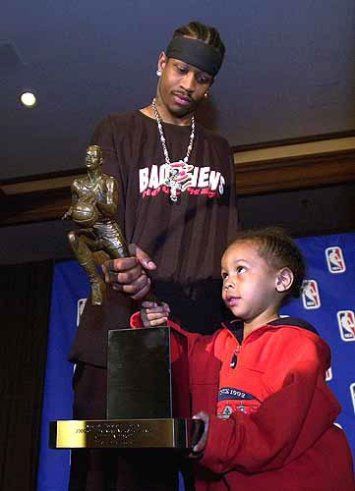
I’ve been thinking about success a lot recently.
When you’re a child, there are milestones and achievements everywhere. Crawling, walking, talking, learning letters and numbers, learning to read and write.
When school begins, the measuring sticks become test grades and report cards. These are far from perfect indicators, but they do a fairly decent job of informing the child, teacher, and parent where the kid falls, both in relation to others as well as against their own individual expectations.
You’re in the same building for years, but you’re still moving up the ranks, advancing. These are, for most of us, an annual right. I was a sophomore last year, I’m a junior this year, and next year I’ll be a senior. The same is true of college, where the ultimate goal for most people (aside from partying) is to obtain a good job or be accepted to a desirable grad school.
These are the mile markers for the first quarter of our lives.
At some point, they stop and the definition of success as an adult becomes much more nebulous. That’s why you see people get married on a whim or decide to live in Zimbabwe for a year. They don’t want to feel like they’re falling behind. Life can get mundane, particularly when we no longer have guideposts to chart our progress, so we invent our own or, worse, live by the standard of others and do what we think we should be doing.
I recently had a conversation with a person that I’ve known for years and have often envied to varying degrees. We ended up talking about work. This guy makes far, far more money than I do, but his job is very stressful and demands quite a bit of travel. I want his money, but I don’t want his job. He makes bank, but he’s not at home as often as he – and his family – would like.
Is he successful?
It depends on the criteria used. As a provider, certainly. He’s in rare company. He can give his family virtually anything. But as an involved parent that is there every morning and afternoon? Unfortunately not. And that’s part of the trade-off for his high salary.
We can’t just define success in terms of money. If we did, being born to a wealthy family or winning the lottery would make a person successful (when in reality they’re just lucky) and dying penniless would deem that a person is unsuccessful, but Edgar Allen Poe’s work still survives to this day, so I wouldn’t consider him a failure.
There are also different measures of success. There have been scores of people that have obtained money, power, and status, but at the same time they were awful parents, spouses, and friends. Are they successful? Half-successful?
Allen Iverson played 14 seasons in the NBA, was an 11-time All-Star, and won the sport’s most prestigious award, the MVP, in 2001. He also made over $150 million in salary. Yet he was not a great husband and is now reportedly bankrupt and an alcoholic. Where does he rate?

Money does play a factor.
A parent can spend every moment with a child, but someone needs to be providing food, clothing, and shelter, all of which costs money. Beyond the necessities and essentials, people with extra cash often give their children advantages that others don’t have, whether it is living in a better school district or sending them to private school or getting them additional tutoring or paying for SAT-prep courses to give them the best possible chance to succeed.
It’s not just school, either. The best sports leagues or dance competitions not only cost thousands of dollars, but also demand that parents travel to different states and stay in hotels, all on their own dime. My sister was a top-notch high school softball player, so multiple spring and summer weekends of my junior high years were spent in Binghamton, New York or Virginia Beach watching as her team played the other great teams along the east coast. My parents had to pay for that. Recently, she spent a weekend in Massachusetts because her son’s hockey team had a tournament there. The cycle continues.
The problem is that, too often, there is an inverse relationship between time and money. When you have an abundance of one, you usually have too little of the other.
Ideally, we would like have a balance – enough money to enjoy life and enough time to enjoy our money. But it doesn’t always work out that way. Compromises and concessions need to be made. I’m often home by 6:30 every night, but there have been times when I haven’t left the office until midnight on a Friday. I’m often tempted to quit on those nights, but then my bonus or profit sharing comes around and it makes a little more sense. I won’t do it every week – or even every month – but if I have to pull a few crazy nights in order to take a vacation or fund the kid’s 529, I consider that a worthy exchange.
When we’re young, we often think of money in terms of what it can get us or where it can take us. Eventually, though, we become ensnared in its web with no clear way of getting out. Like Tyler Durden said, “The things you own end up owning you.”
There’s nothing wrong with getting everything you’ve ever wanted – or everything you think you’ve ever wanted – provided that you always remember that what you want will change over time.
There is no standard equation for success. It’s not just money or just love or just free time and the combinations are different for all of us. Some of us want a condo downtown, others want a house on a lake. Some of us want a house full of books while others would rather buy a gorgeous car.
There is no scoreboard for life. We all take our own path and, many times, that path is filled with potholes, detours, and traffic jams. So be it.
In the end, the only person that knows if you’re successful is you.
Christopher Pierznik is the author of eight books, all of which can be purchased in paperback and Kindle. His work has appeared on XXL, Cuepoint, Business Insider, Medium, The Cauldron, and many more. Subscribe to his monthly reading review newsletter or follow him on Facebook or Twitter.
One reply on “What is Success?”
This is such a great post 🙂 It really gets you thinking about what is important and what matters! Thank you for the insight!
LikeLike